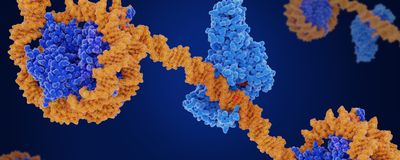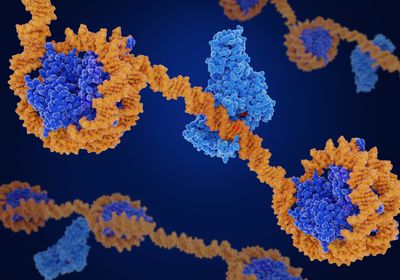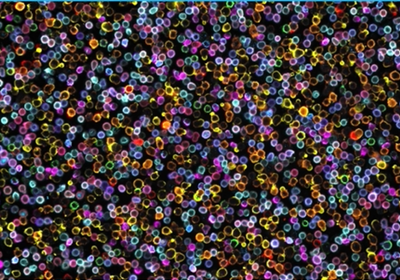ABOVE: © ISTOCK.COM, SELVANEGRA
Stress in its different flavors—such as adverse events during childhood or psychological stress—associates with accelerated cellular aging. A study published today (April 21) in Cell Metabolism adds evidence that exposure to stressful stimuli advances the biological clock, but it also suggests that once individuals recover from the stress, the effect is reversible.
The researchers reached this conclusion based on experiments in mice and data from humans who underwent surgery, pregnancy, or had COVID-19. The age of the individuals was calculated mainly using DNA methylation clocks, which assess the methylation levels throughout the genome, and a new generation of more sophisticated clocks even assesses some aspects of health status.
See “Study Links Stress to a Faster-Aging Immune System”
“There are just very very few studies that have looked at these clocks before and after some kind of intervention,” said Daniel Belsky, an epidemiologist at Columbia University Mailman School of Public Health, who did not participate in this study but peer reviewed it. Thus, this assembly of “data before and after measurements of a large variety of interventions is a really powerful step” in the field, he added. (Belsky has ongoing unrelated collaborations with some of the authors of this study.)
The study authors, led by Harvard Medical School aging researcher Vadim Gladyshev and Duke University School of Medicine cell biologist James White, first made use of a surgical technique known as heterochronic parabiosis to join two mice of different ages so that they shared blood circulation. The researchers found that pairing young mice (3 months old) with 20-month-old mice increased the biological age of the young mice based on their epigenetic, transcriptomic, and metabolomic clocks. However, after mice were separated, this effect reversed.
The key finding is this reversal of the epigenetic aging following detachment, said White. “That's the thing that a lot of people didn't think was possible; they thought once you start climbing that ladder, there's no way to get back,” he added.
See “Epigenetic Manipulations Can Accelerate or Reverse Aging in Mice”
Motivated by the mouse results, White, Gladyshev, and their colleagues decided to explore the same question in humans. They analyzed the DNA methylation age of blood samples of humans transiently exposed to stressful situations—both from the team’s own data and from publicly available data. Patients exposed to emergency surgery, pregnancy, or severe COVID-19 showed, overall, the trend seen in mice: an increase in their epigenetic age based on measurements from the new generation of DNA methylation clocks during the event, followed by a return to baseline values once the stressful stimulus ended.
Not all stressful events led to the same results, though, and the outcome varied among human individuals. For instance, patients undergoing elective hip or colorectal surgery did not show this trend, and among COVID-19 patients, the outcome seemed to be highly influenced by sex.
Regarding the potential clinical translation of these findings, Belsky, who coinvented one of the DNA methylation clocks used in this study, said that “we're a long way from” it. Yet, he added, the observations hint at a future in which tests such as these epigenetic clocks—or “based on the big molecular data like the kind used to build these clocks”—might be administered “to patients undergoing surgical procedures or experiencing other kinds of medically-induced stresses to gauge the success of their recovery or to make more general prognosis for the long term.”
“It could be the case that someday we'll be able to use these tests to learn things about patients that today we can't see,” Belsky concluded.







